#Dmitri Tcherniakov
Text
A L'ENTORN DE LA DIRECCIÓ ESCÈNICA A LES ÒPERES WAGNER (1): DER FLIEGENDE HOLLÄNDER A BAYREUTH
Herman Uhde (Holländer) 1955, potser la interpretació més impressionant d’aquest rol.
L’inquiet Club Wagner em va convidar fa unes setmanes a un diàleg sota el títol “La direcció escènica a les òperes wagnerianes”, fet que em va esperonar a fer aquesta sèrie d’apunts que inicio avui, amb la relació de tots els directors escènics que han treballat al Festspielhaus des de la seva inauguració fins…
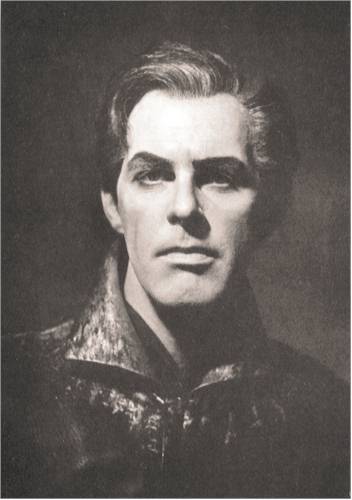
View On WordPress
#August Everding#Claus Guth#Cosima Wagner#Der Fliegende Holländer#Dieter Dorn#Dmitri Tcherniakov#Harry Kupfer#Heinz Tietjen#Jan Philipp Gloger#Richard Wagner#Siegfried Wagner#Wieland Wagner#Wolfgang Wagner
0 notes
Text
FESTIVAL D'AIX. UN "COSI FAN TUTTE" ICONOCLASTE EN FORME DE PALIMPSESTE
FESTIVAL D’AIX EN PROVENCE 2023. “Così fan tutte” – Opéra de Wolfgang Amadeus Mozart – Livret de Lorenzo da Ponte, créé le 26 janvier 1790 à Vienne – Direction musicale : Thomas Hengelbrock – Mise en scène : Dmitri Tcherniakov – Spectacle donné au Théâtre de l’Archevêché les 6, 8, 11, 13, 15, 17, 19 et 21 juillet à 21h30.
Il n’y a pas de Festival d’Aix sans Mozart et cette édition renoue avec…

View On WordPress
#Cosi Fan Tutte Festival d&039;Aix 2023#Cosi Fan TutteDmitri Tcherniakov#Dmitri Tcherniakov Cosi fan tutte#Festival d&039;Aix 2023#Festival d&039;Aix en Provence#Festivals#Musiques#Opéra
1 note
·
View note
Text
29 DE OUTUBRO DE 2023/: DOMINGO CINZENTO CHUVOSO , LEITURAS SIMULTÂNEAS E EXIGENTES . OPERA EM CASA COM A SALOMÉ DE RICHARD STRAUSS TRANSMITIDA EM DIRECTO DE HAMBURGO . ENCENADA POR TCHERNIAKOV TEVE O FASCÍNIO DA SOPRANO ASMIK GRIGORIAN : .um domingo chuvoso que instiga à leitura . À “Geada” de Thomas Berhard e a “Melancolia “de Jon Fosse juntei a “ A Perfect Theory” oferta do meu amigo Pedro Gil Ferreira . A leitura desta biografia da relatividade ” é empolgante . Depois de um prólogo em que o professor de Oxford revela o seu “lifelong love affair” com a teoria de Albert Einstein Ferreira retrata magistralmente a ciência e os cientistas por trás da história acidentada da teoria da relatividade e argumenta que, mesmo agora, estamos apenas a começar a perceber a sua vitalidade como uma ferramenta para entender o cosmos.
O filósofo da ciência Karl Popper admirava a audácia de Einstein. Apesar de inúmeras tentativas, tanto por amadores quanto por laureados com o Prêmio Nobel, ninguém conseguiu “falsifica-la” . Popper eventualmente declarou a relatividade como o summus da ciência moderna, um ideal ao qual toda a ciência deveria aspirar. A relatividade inspira o público em geral de maneira semelhante, quase como uma obra de arte, a visão de Einstein do cosmos continua a maravilhar. Ama-se a forma como ele revelou os segredos mais profundos da natureza com pouco mais do que papel e lápis. Às 18 horas houve opera em casa com a transmissão em directo da estreia da nova produção da Salomé da Opera Estatal de Hamburgo encenada por Tcherniakov e com a fabulosa Asmik Grigorian no papel principal . A lituana com o fulgor do seu belo soprano repetiu o êxito de Salzburgo . Na encenação de Tcherniakov não há cisterna nem sangue nem cabeça decepada . Todos os personagens estão num banquete de Herodes e Jochanaan, é apresentado aqui como um burocrata com uma peruca. Como é que Dmitri Tcherniakov pensou por um segundo que isso funcionaria? Talvez o melhor seja o erotismo burguês da abordagem a dança dos sete véus . De qualquer modo um streaming imperdível e está Salomé merece uma nota dedicada que farei depois Quanto ao assado de domingo foi lombo de porco criado com castanhas ..

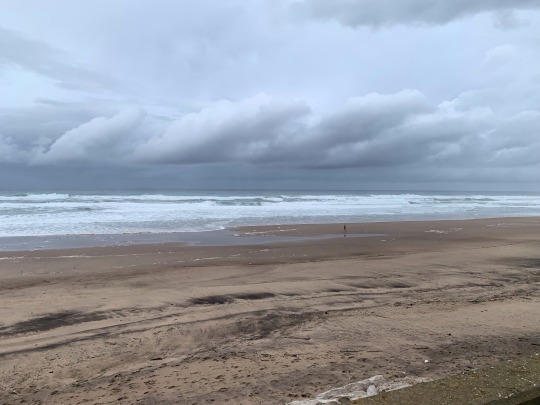

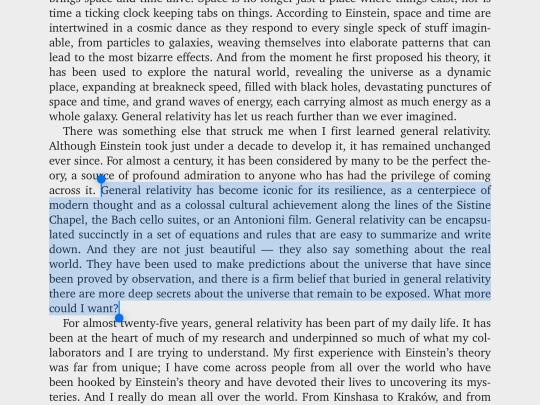

0 notes
Text
Anna Goryachova was born in Leningrad (Saint-Petersburg). In 2008 she graduated with distinction from the Vocals Faculty of the Rimsky-Korsakov St Petersburg State Conservatory (class of Tamara Novichenko and subsequently class of Galina Kiseleva). From 2009 to 2011 she trained under Renata Scotto and Anna Vandi at the Accademia Nazionale di Santa Cecilia (Rome) and also under Romualdo Savastano at the A.R.T. Musica academy (Rome). From 2008 to 2011 Anna was a soloist at the Mikhailovsky Theatre and the St Petersburg Chamber Opera. In 2010 she was nominated for Russia’s Golden Mask National Theatre Award for her performance of the role of Donna Elvira in the opera Don Giovanni staged by Yuri Alexandrov. In 2011 under the direction of Alberto Zedda she made her debut at the Vlaamse Opera (Flemish Opera) in Antwerp as the Marchesa Melibea (Il viaggio a Reims, Mariame Clément’s production). From 2012 to 2017 Anna was a soloist at the Opernhaus Zürich, where she performed the roles of Adalgisa (Bob Wilson’s production of Norma), Rosina (Rossini’s Il barbiere di Siviglia), Polina (The Queen of Spades), Magdalena (Die Meistersinger von Nürnberg), Zerlina (Don Giovanni), Eustazio (Handel’s Rinaldo), Zelim (Vivaldi’s La verità in cimento), Masha (Eötvös’ Three Sisters), Marchesa Melibea and so many others. She has collaborated with such conductors as Teodor Currentzis, Nello Santi, Fabio Luisi, Alain Altinoglu, Enrique Mazzola, Riccardo Frizza, Ottavio Dantone, Stefano Montanari and Daniele Rustioni among others. Took part in the world premiere of Christian Jost’s opera Rote Laterne (2015). In 2012 Anna sang the role of Alcina (Orlando paladino) at the Théâtre du Châtelet in Paris and made her debut at the Rossini Festival in Pesaro (Italy) as Edoardo (Matilde di Shabran) staged by Mario Martone and conducted by Michele Mariotti. In 2020 at the Grand Théâtre de Genève she sang the roles of Angelina (La Cenerentola) and Sesto (La clemenza di Tito, staged by Milo Rau) in addition to making her debut at the Vienna State Opera in the role of Olga (Dmitri Tcherniakov’s production of Eugene Onegin); in Vienna she subsequently performed the roles of Angelina and Carmen. In 2022 as Angelina she made her debut at the Mariinsky Theatre (St.Petersburg). In the 2020–21 season Anna received Valencia’s “Best Mezzo-Soprano of the Season” award for the role of Angelina in La Cenerentola, staged by Laurent Pelly at the Palau de les Arts Reina Sofía.
We all know that this has been a pretty tough time for the socio-political environment, which affected also the arts in a considerable way, and it was so beautiful to see you and your Ukrainian colleague hugging each other during the standing ovation. What do you think about this matter, about the way theaters, but also the society, took actions towards the Russian artists?
Honestly, during these 3 months I have never found any change of attitude from my colleagues, nor from the theaters. The political conflict should not affect the cultural environment.
Indeed, you all seemed such an united team on stage and behind it! Was it your first Carmen in the amazing production of Calixto Bieito, which such a passionate stage parter as Vittorio Grigòlo, for his debut at Don José?
There was such an amazing energy coming from the stage towards us, in the audience! Thank you so much, I already sung in this production in Madrid in 2017. It’s a very intense staging. And I was very much touched to see the standing ovations in Wiener Staatsoper every evening. I never met Vittorio before and we really enjoyed playing and singing together. It was a perfect artistic match, I think! I adore Vittorio! He is not only an incredibly talented artist, but he is also a very nice person offstage. And his role debut was sensational!
reposted from https://opera-charm.com/
0 notes
Text
Pelléas et Mélisande (Zürich, 2016): Reactions, Part I
given that this is a dmitri tcherniakov production, five bucks says that this production is either about therapy, poppies, or weird-ass parties
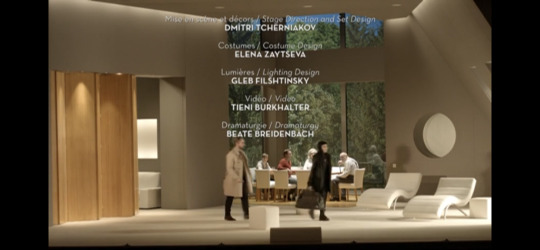
okay so are the first couple scenes gonna be flashback because this is what happens in between scenes two and three of act one
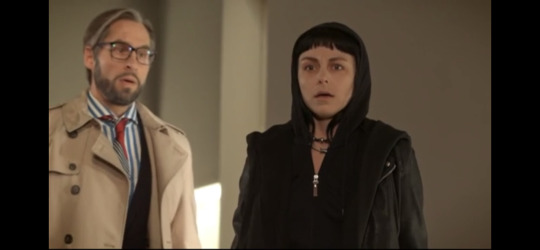
golaud nerd and mélisande goth also KYLE KETELSEN AND CORINNE WINTERS MY BELOVEDS
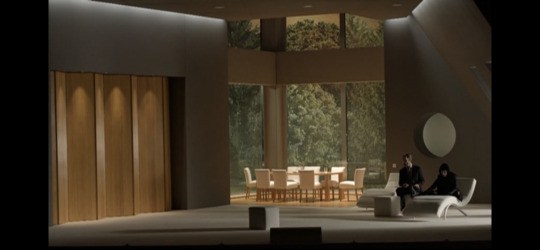
okay ngl i would actually like this house
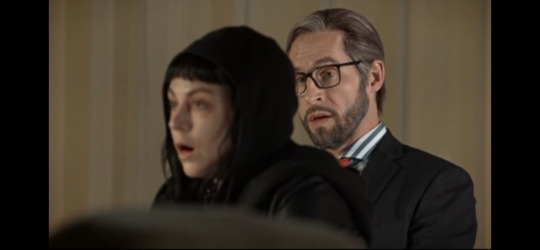
see, this scene doesn’t really work if you’ve been staring at her the entire time
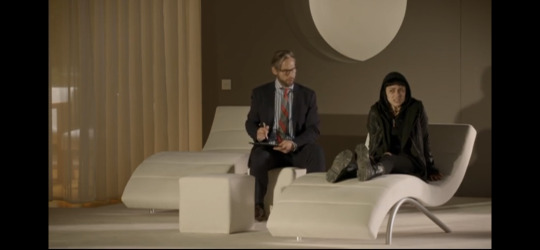
YUP HE’S A THERAPIST EVERYONE GIVE ME FIVE BUCKS I FUCKIN CALLED IT
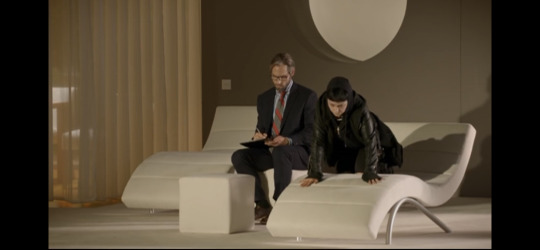
“a goth princess? well that’s new”
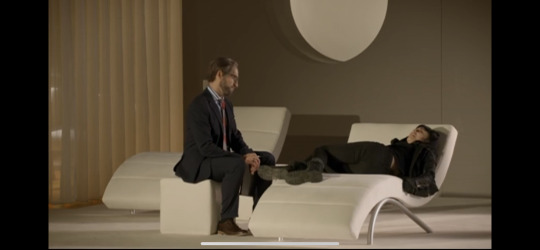
“who are you?”
“um, i’m your new therapist”

“well that was a fun therapy session…not”
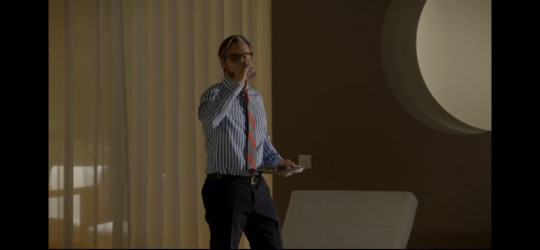
dude mélisande just drank out of that do you want mono or covid

the unique mid-2010s experience of being a tween and wearing those big fluffy headphones and walking around the house

actually i wonder if he’s listening to pelléas et mélisande through the headphones
i mean, this production does take place in the (then) present day, where you could listen to several different recordings of the opera through music download and streaming services
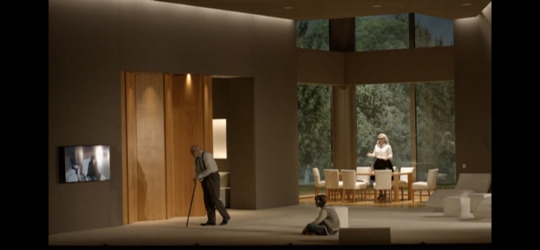
the tree effect is cool
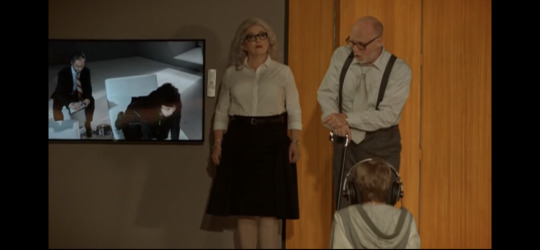
“meh i don’t care that he’s violating hipaa i’m just happy he’s getting married again and isn’t depressed anymore”

JACQUES IMBRAILO!!!!!! also why is he dressed like Mr. Rogers
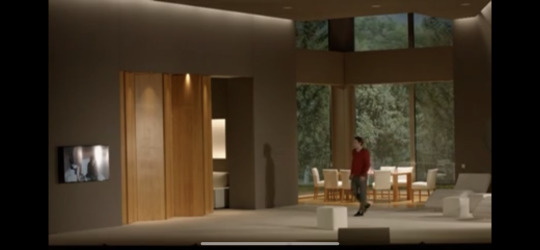
this interlude is GORG
also this feed thing with the film of mélisande is REALLY unsettling
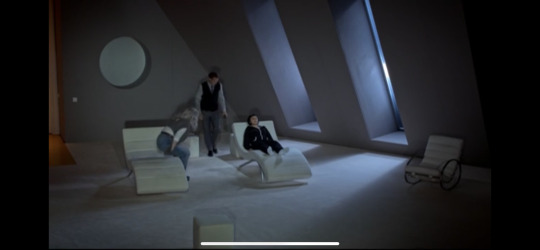
fucked up therapy sessions are a family effort
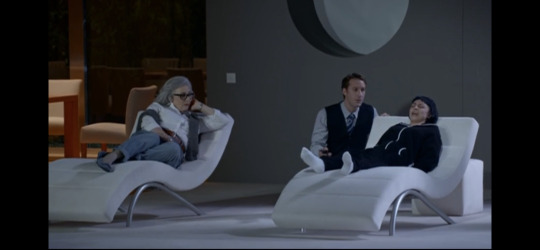
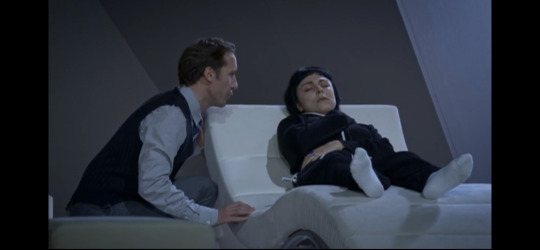
honestly, so far this “collective gaslighting” thing is infinitely less interesting or human-feeling than just. having it be a family living in an isolated castle surrounded by nature and mélisande as the outsider struggling to adjust
like. so far this feels so cynical and manipulative when it should be shy and confused and genuine

okay that’s better, actually, even though the lead-up with them so far does not feel well-handled
let’s hope it goes more in this direction

annnnnnnnnnnnnd it immediately goes to pelléas watching the creepy mélisande tapes
like i’m pretty sure it’s illegal for a therapist to film therapy sessions (well aside from like security cameras or whatever but that’s a different issue)
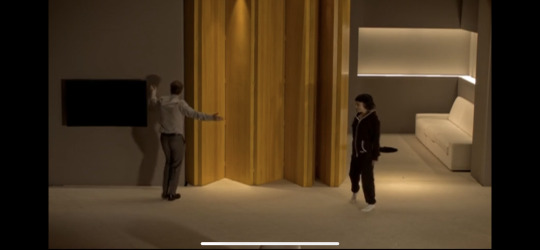
and he immediately shut off the film when mélisande came in
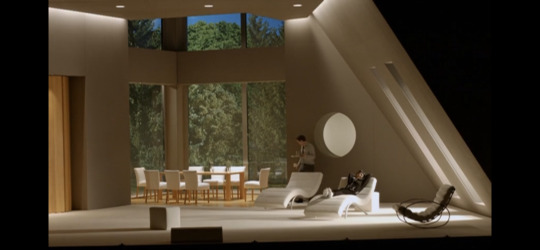
the lighting designer captures debussy so well
(also i LOVE the writing in this scene)
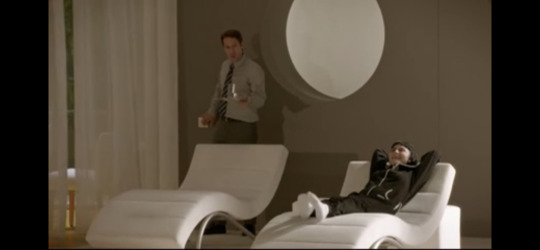
mélisande looks so happy :)
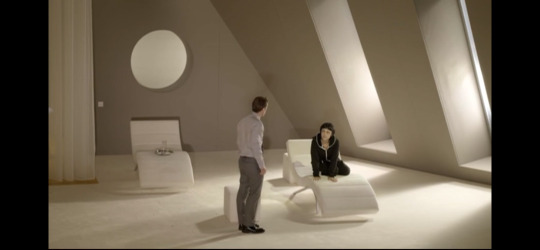
“so we had a fountain and people came to it because we said it could heal the blind but then arkel went near-blind and it couldn’t heal him so everyone figured out it was a fraud and now we just play in it”
“…nice?”

well, mélisande, we can’t know if your hair is actually longer than you because it’s still up
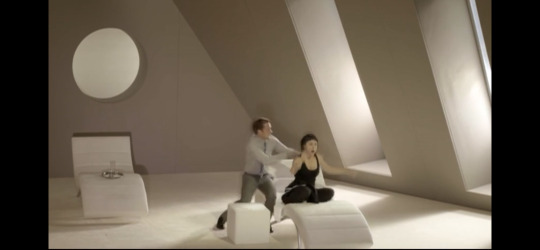
“mélisande, this is the exact fucking reason i told you not to throw your ring in the air like that”
“oh.”

i mean given that it fell onto a white floor it should not be too hard to find
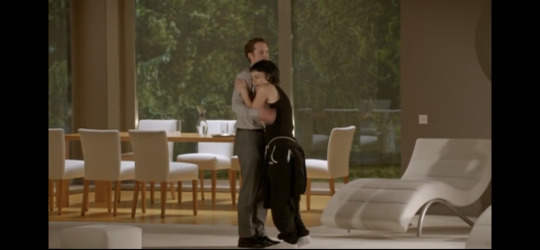
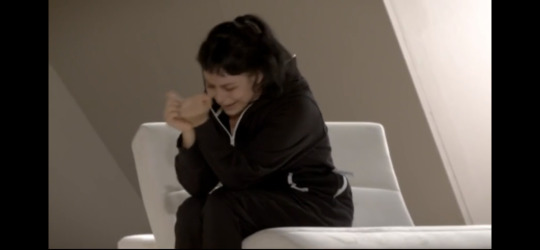
oh honey
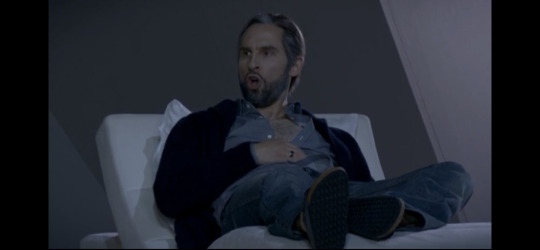
in spite of everything he sounds so genuinely concerned about her

“i don’t think pelléas likes me (in the same way i like him)”
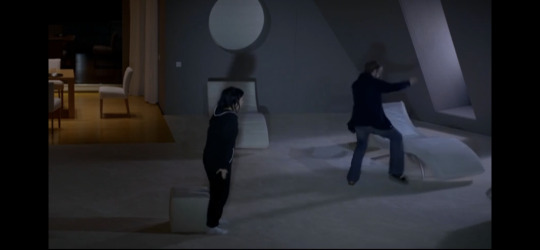
outbursts of Violence
definitely not foreshadowing
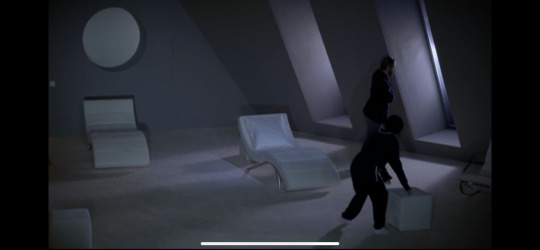
oh, it’s very old? dang that must have been a very big remodeling project then
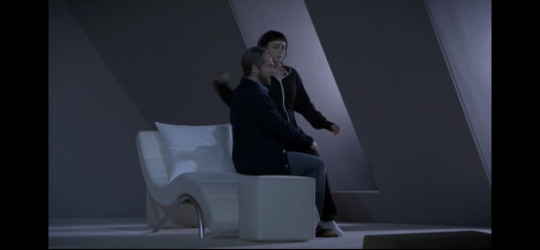
“sir i am a grown ass woman please do not make me sit on your lap”

girlie you and i both know that that is not where the ring is
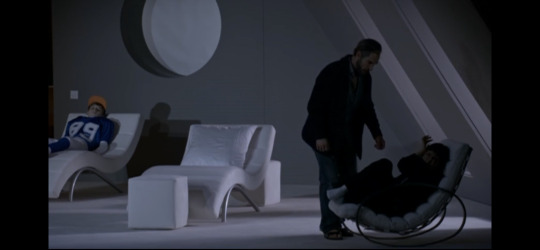
that’s not very good therapist conduct of you

golaud hard slapped the doctor
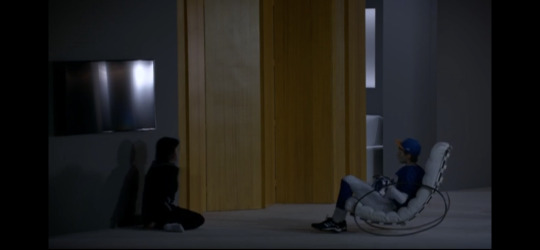
“sorry you had to see that, kiddo”
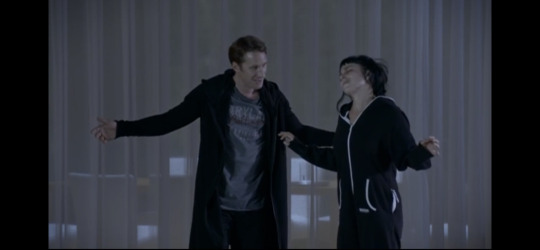
this looks like the movement exercises i did in acting class

“alright time to snap out of the therapy session”

what’s puzzling me about this production is that it feels so sterile (as discussed above) and yet both acts i and ii have ended with these wrenchingly genuine moments between pelléas and mélisande
#opera#opera tag#pelléas et mélisande#pelléas and mélisande#opera liveblog#debussy#claude debussy#this is…really weird
1 note
·
View note
Link
https://independent.academia.edu/Kosiewski/Drafts
PDF:
https://www.academia.edu/44926173/TELEFON_KIERUNKOWY_666_MOSKWA_INFERNO_FO_CB24_SSetKh_HERODY_Herodenspiel_von_Stefan_Kosiewski_na_Aleksander_Garunowicz_20210116_ME_SOWA
https://www.academia.edu/89451570/MOTYWY_PRZEWODNIE_W_KULTURZE_EUROPEJSKIEJ_von_Stefan_Kosiewski_SSetKh_ZR_ZECh_FO_20221029_ME_SOWA
0 notes
Text
0 notes
Text
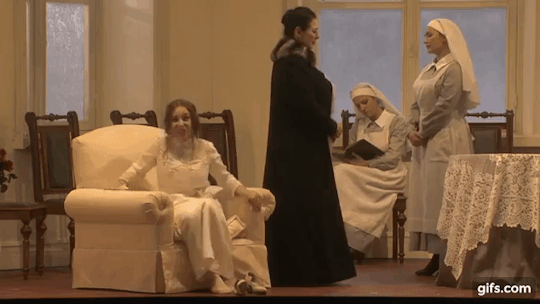

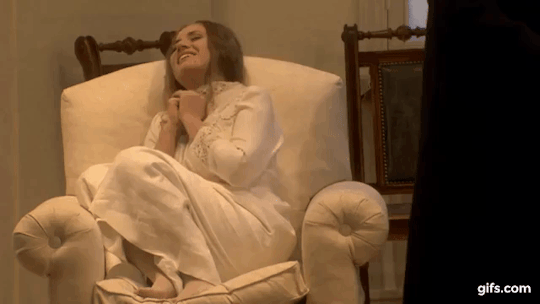


Отчего это прежде не знала
Ни тоски я, ни горя, ни слез,
И все дни протекали, бывало,
Среди звуков небесных и роз?
Чуть услышу я птиц щебетанье,
Чуть тепло оживит дальний бор,
И везде зазвучит ликованье, –
Я вступала в торжественный хор!
А теперь все мне днем навевает
Непонятный, глубокий упрек,
И укоры судьбе посылает
Птичек хор и шумящий поток.
Отчего это ночи молчанье
И прохлада мне стали милей?
Отчего я как будто рыданья
Слышу там, где поет соловей,
Отчего? Отчего, скажи? Отчего? Отчего?
Скажи, Марта?
#After Onegin now Iolanta#It's russian opera night#I looooove the aesthetic of this production#and Sonya is PERFECT as Iolanta#opera#opera tag#operablr#iolanta#tchaikovsky#classical music#sonya yoncheva#soprano#russian#russia#gifs#music gifs#opera gifs#opéra de paris#dmitri tcherniakov#art#aesthetic#vintage
18 notes
·
View notes
Text
Opera livestreams from the Festival d’Aix: Carmen and Don Giovanni
I feel a little strange promoting an opera livestream in direct competition with tonight’s Hamlet from Glyndebourne, but the Tcherniakov Carmen at the Festival d’Aix is making a bit of a splash—Tcherniakov has written new dialogue and reframed the plot so that Carmen does not die at the end—and I thought you guys might want to know that tonight’s performance is being livestreamed on Arte. It doesn’t look like the video will be available on demand afterward so I hope somebody makes a rip. By the way, the title role is sung by Stéphanie d'Oustrac, who I think is pretty wonderful.
At the moment, the Arte website is telling me “Cette vidéo n’est pas disponible dans votre pays” (my “pays” being the US) but I’m not positive whether that means the livestream itself will be geoblocked or whether that’s just a default message coming up because the livestream hasn’t started yet. If you find you can’t get the video livestream you can at least listen to an audio broadcast on France Musique (also live from tonight’s show; should be available on demand later).
In related news, Don Giovanni will also be livestreamed from the Festival d’Aix on Monday, July 10, by Medici.tv. The stars include Eleanora Buratto (Donna Anna) and Isabel Leonard (Donna Elvira).
#opera tag#dmitri tcherniakov#carmen#stéphanie d'oustrac#don giovanni#eleanora buratto#isabel leonard
1 note
·
View note
Text
Wagnerrant Review #5 - Not enough Holländer
Work: Der Fliegende Holländer
Bayreuther Festspiele
Date of performance: 25.07.2021
Team
Director: Dmitri Tcherniakov
Conductor: Oksana Lyniv
With: Georg Zeppenfeld, Asmik Grigorian, Eric Cutler, Marina Prudenskaya, Attilio Glaser, John Lundgren
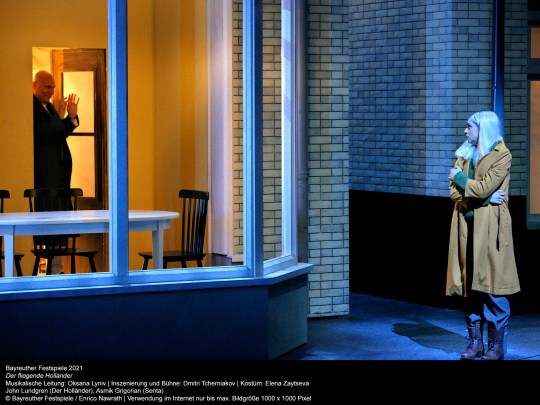
Trigger warning: S*icide mention, mass m*rder mention.
Review: @dichterfuerstin
Dmitri Tcherniakov’s Der Fliegende Holländer looks more like the latest episode of Netflix Germany’s Dark than like an old sailor’s tale. The audience is presented with the foggy image of a small town. Grey brick buildings, grey pavement, grey streetlight. Just the rubber boots that are part of most of the costumes pay a small tribute to the original setting. Maybe the small town is a fishing village. And just like the sets, the story told on stage has little to do with what’s written in Wagner’s libretto.
It’s a crime story, rather than a mystery.
Instead of being a sea captain, the Holländer appears as a man referred to as “H” who according to the writings on stage has a “strange, returning dream”. This dream, or rather memory, is shown during the overture. “H” is shown as a little boy whose mother has an affair with no one less than Daland himself. When her affair is discovered, the village shuns H’s mother to the point where she commits suicide in front of her son.
The set is a little too calm for how booming and fast Oksana Lyniv’s overture is, and it’s radically different to what Wagner wrote in his libretto, but it works with the music pretty well during the first two acts. He remembers Daland, Daland has a vague idea who the stranger is. And Mary, excellently sung by Marina Prudenskaya and in this production upgraded to Daland’s wife and Senta’s (Step-)mother, seems to know exactly. She carries the Holländer’s picture around and is visibly scared of him. Add to this the perfectly spooky and mysterious atmosphere. It takes a while for the audience to realise that the “dream” is in fact a memory that the wondering of how much of it is true and what’s going to happen is always prevalent, especially every time the Holländer walks past the house where his mother died.
The characterisations in Tcherniakov’s production are on point. Mary is just strict enough, Georg Zeppenfeld’s Daland is not only audibly full in character, his facial expressions are on point throughout the entire opera. Of course, the modern setting does make him basically trading away Senta more awkward and actually less understandable.
Especially since Senta is very young. Daland’s daughter doesn’t seem much older than sixteen thanks to Asmik Grigorian’s brilliant acting. She’s way younger than the Holländer, even Erik seems too old for her. But she’s sassy. She’s impudent, she smokes, she dyes her hair. She isn’t that dreamy girl carried away by the tale of the mysterious dutchman, she rather seems to mock him, and yet falls in love when she meets him in at dinner. Asmik Grigorian conveys all of this not only in her acting but also in her voice. Of course, she sounds older, but it doesn’t matter. The sound is clear, the diction well, and the Festpiel-debut successful.
John Lundgren’s Holländer is equally well-acted. Though he doesn’t do much. The Holländer’s a very passive character, spending most of his time watching, and being strange. He constantly seems out of place thanks to his white sweater in contrast to the rather brown costumes everyone else, including Senta, wears. Making the Holländer stand out is a standard decision, but it is very well executed by costume designer Elena Zaytseva. Lundgren’s voice fits as well, apart from becoming audibly strained in act three. He isn’t as booming as most Holländer’s, rather pretty, but that is perfect for this characterisation, where the Holländer isn’t punished for cursing on God but traumatised because he saw his mother getting hounded until she killed herself. He isn’t even a captain, he’s alone. To the end of the opera, a handful of men he met at the pub who listened to him telling his story become his crew and get spared when the Holländer shoots into the crowd gathered on the town square to celebrate.
For two hours the audience wonders where the production will lead. Will Senta die where the Holländer’s mother died? Will they die together as it’s written in the libretto? And in the end, it’s a mass shooting and arson committed by the Holländer. Although this ending makes perfect sense for the Holländer the way he’s set up in Tcherniakov’s production, it’s a somewhat disappointing ending.
Daland doesn’t even appear on stage. Shouldn’t he have some kind of reaction to the Holländer’s doing? For the first time Grigorian’s acting isn’t sufficient enough for the audience to understand what she’s feeling, the production doesn’t really provide good answers. And while making Mary Daland’s wife made her more important, the character didn’t have enough to do to explain why it’s her who eventually shoots the Holländer and then has to be cared for by Senta.
The ending is an ending for a crime story. It’s a thriller, but not the one Wagner intended. For the Holländer, the focus should be a little more on the bond between Senta and the Dutchman. But on it’s own, the story told by Dmitri Tcherniakov is interesting and thought-through.
At least Oksana Lyniv’s conducting stays consistently emotional. The 43-years-old Ukranian conductor makes her Festspieldebut in this production, as the first ever woman to conduct an opera at the Bayreuther Festspiele, and she does it well.
She manages to remain unfazed by the many interruptive noises in this production. Be it chairs or tables collapsing in act one, or gunshots in act three, and she’s singer-friendly. Maybe a little too singer-friendly, sometimes the orchestra does seem too much in the background. But overall, she does an amazing job. Her overture stands out the most, but the entirety of her Holländer is nothing short of beautiful. And fulfils the most admirable task of holding orchestra, soloists and chorus together, which is especially difficult this year: Due to the pandemic, half of the chorus acts on stage, the other half sings in the chorus-hall and their singing gets transmitted into the audience via speakers. And somehow this needs to sound natural – and be on time. Lyniv and chorus master Eberhard Friedrich work together well, so the audience doesn’t hear that something’s different this year.
This by the way also isn’t noticeable in the production. Neither does the stage seem empty nor are there six feet distance between every two singers. It’s a standarf production, and just as it’s standard for Bayreuth, director Dmitri Tcherniakov got booed by the audience. Undeserved, it’s a captivating and interesting to watch production, but it won’t make history as one of the strongest Bayreuth-productions either - it just isn’t enough Holländer.
11 notes
·
View notes
Text
BAYREUTH 2021
M’hagués agradat, com era habitual a can IFL fer un apunt per a cada òpera de les retransmeses del Festival de Bayreuth 2021, però un accident em té amb el braç dret en un cabestrell i això em dificulta enormement l’escriptura i no em deixa esplaiar com voldria en cada títol del vist (holandès) i escoltat (Meistersinger, Tannhäuser i Walküre).
Retornar a finals de juliol a les tardes wagnerianes…
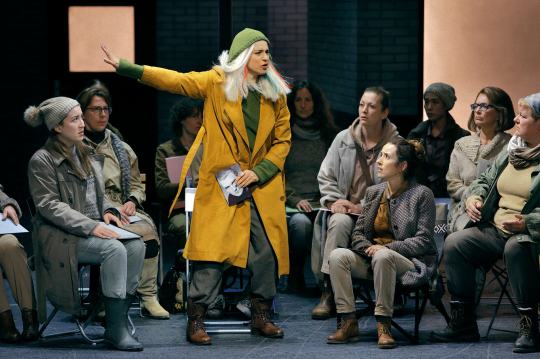
View On WordPress
#Andreas Hörl#Armin Kolarczyk#arson#Asmik Grigorian#Attilio Glaser#Axel Kober#¨Timo Riihonen#Bayreuth 2021#Bayreuther Festspielorchester und Festpielchor#Bo Skovhus#Brit-Tone Müllertz#Camilla Nylund#Christa Mayer#Christopher Kaplan#Daniel Behle#Daniela Köhler#Der Fliegende Holländer#Die Meistersinger von Nürnberg#Die Walküre#Dmitri Tcherniakov#Dmitry Belosselskiy#Ekaterina Gubanova#Eric Cutler#Günter Groissböck#Georg Zeppenfeld#Iréne Theorin#John Lundgren#Jorge Rodríguez-Norton#Katharina Konradi#Kelly God
1 note
·
View note
Text
KAMMERAKADEMIE POTSDAM ANTONELLO MANACORDA
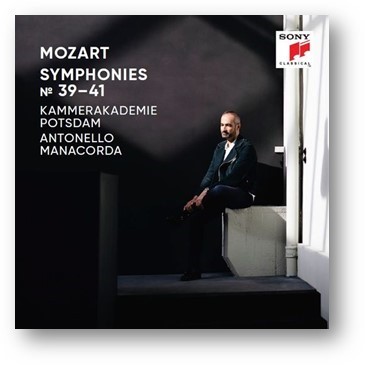
MOZART: SYMPHONIES NOS. 39-41
Una excelente grabación de las famosas últimas tres sinfonías de Mozart. A la venta el 24 de septiembre.
Consíguelo AQUÍ
Antonello Manacorda y Kammerakademie Postdam recibieron el aplauso de la crítica por su ciclo de grabaciones de las sinfonías de Mendelssohn y Schubert: "Manacorda y la Kammerakademie Postdam saben exactamente cómo ofrecer alternativas sin estirar demasiado el arco o incluso apoyarse en el efecto puro.
[...] Aquí uno percibe cuánto disfruta el equipo al tocar esta música." (Rondo), "Manacorda construye magistralmente frases y equilibra el sonido general, y también posee un sentido infalible de tempo. Aquí todo respira, la música fluye constantemente, [...] [una] imagen en gran medida perfecta." (Concerti) El nuevo álbum incluye las famosas tres últimas sinfonías de Wolfgang Amadeus Mozart (1756-1791): las No. 39, 40 y 41. Este espectacular trío de sinfonías fue escrito en Alsergrund en el verano de 1788 y se terminó en solo dos meses, completado, además, en paralelo con otras obras. Mozart puso los toques finales a la Sinfonía en mi bemol mayor el 26 de junio, continuando con la Sinfonía en sol menor el 25 de julio y con la Sinfonía en do mayor el 10 de agosto.
Mozart concibió, muy probablemente, este grupo de tres trabajos como una unidad de gran variedad inherente y trabajó en las sinfonías individuales en paralelo. La apertura de la Sinfonía en mi bemol K543 (No. 39) está concebida como obertura de la trinidad y el último movimiento de la Sinfonía Júpiter en do mayor K551 (No. 41) parece resumir todo lo anterior.
Kammerakademie Potsdam
Como orquesta de cámara versátil y dinámica, la Kammerakademie Potsdam se ha forjado una reputación que supera los límites de la ciudad desde su fundación en 2000. Giras de conciertos por toda Europa, América del Sur y Asia y numerosas grabaciones en CD ganadoras de premios dan testimonio del éxito y espíritu innovador del grupo. Desde la temporada 2010/11, Antonello Manacorda ha sido el director principal y director artístico de la Kammerakademie Potsdam. El repertorio del grupo de 32 integrantes abarca cuatro siglos de historia musical desde el siglo XVII hasta el presente, e incluye música de cámara, música sinfónica, oratorio y ópera. La temporada 2020/21 traerá a Postdam a muchos solistas de fama mundial, entre ellos, Dagmar Manzel, Robin Johannsen, Andreas Ottensamer, Gábor Boldoczki y Kristian Bezuidenhout.
Antonello Manacorda
Es un artista italiano con una fuerte predilección por el repertorio alemán. "Melodista por naturaleza" (Der Tagesspiegel), que sabe transferir convincentemente la alegría detallada de la práctica de la interpretación estilística al gran aparato. La versatilidad de Antonello Manacorda como director se basa en la riqueza de sus huellas musicales y culturales. Se le puede escuchar con frecuencia en los teatros de ópera internacionales como en el pódium de las mejores orquestas sinfónicas. El centro de su trabajo lo ocupa la Kammerakademie Potsdam, de la cual es director artístico desde 2010. Con la Kammerakademie Postdam, Antonello Manacorda ha grabado un ciclo de Mendelssohn y un ciclo de Schubert para Sony, que han recibido excelentes críticas. La pasada temporada, Manacorda debutó en el Metropolitan Opera de Nueva York ("Le nozze di Figaro"). En la temporada 2020/21, Manacorda visitará la Ópera Estatal de Viena ("Die Entführung aus dem Serail") y presentará una nueva producción de "Der Freischütz" de Dmitri Tcherniakov en la Ópera Estatal de Bavaria, donde también dirigirá producciones de "Così fan tutte" y "Die Zauberflöte." De la temporada sinfónica de 2020/21 destacan las presentaciones como invitado de la Filarmónica Real de Estocolmo, la Sinfónica de Viena, la NDR Radiophilharmonie, y la Boulez Ensemble.
0 notes
Text
Dialogues des Carmélites - Poulenc
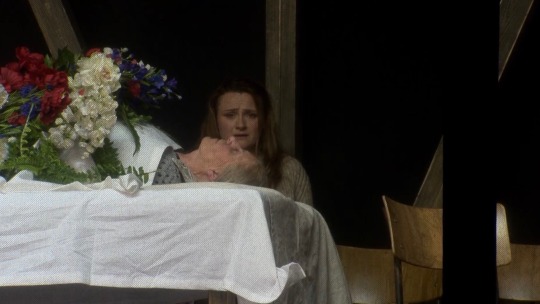
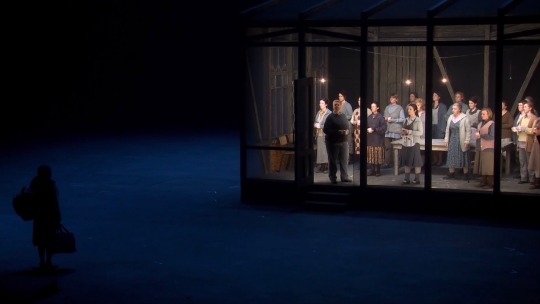
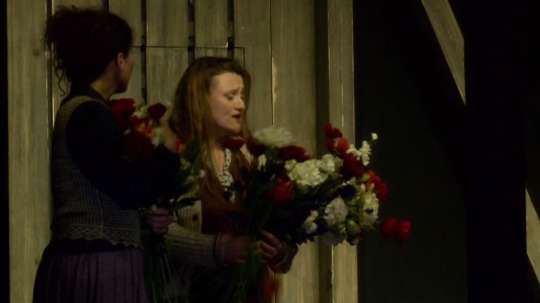
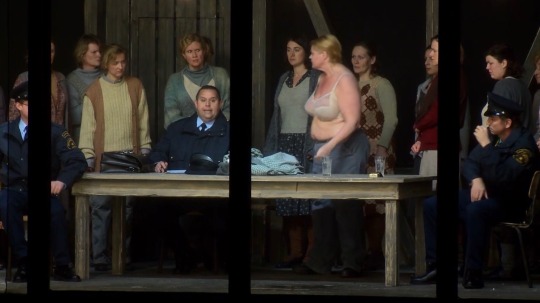
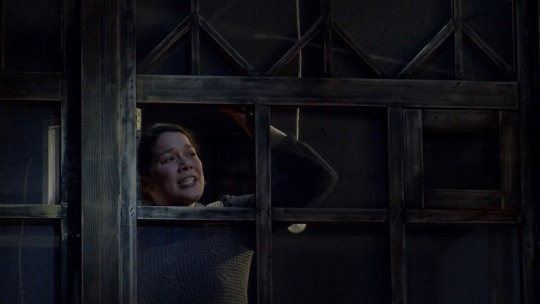
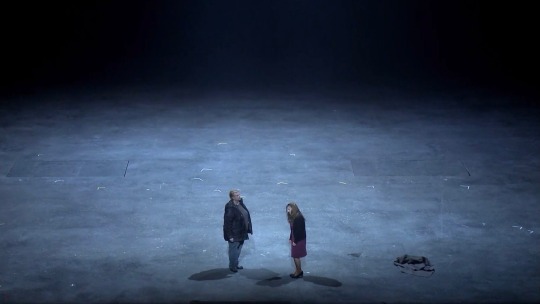



Rife with historical references, Poulenc's Dialogues of the Carmelites is a 20th-century opera masterpiece and an insightful exploration of wide-reaching themes: life, death, honor, and religion. In 1789, at the beginning of French Revolution, Blanche de la Force—daughter of a nobleman—senses the rising wave of anti-aristocratic sentiment and decides to become a nun, hoping to find safety in the convent. After their prioress dies, the whole convent—including the new Sister Blanche of the Agony of Christ—take a vow of martyrdom and, when sentenced to death, resign themselves to their fate, singing the moving "Salve Regina" as they march to the guillotine.
Visionary Russian stage director Dmitri Tcherniakov, winner of four Golden Mask awards for Best Director, transposes Poulenc's opera into a Soviet context, with sparse and unadorned scenography and a stellar cast that includes Susan Gritton as Sister Blanche and Bernard Richter as her brother, the Chevalier de la Force. Under the baton of the great Kent Nagano, the Orchestra and Choir of the Bayerische Staatsoper bring out the poetry in Poulenc's opera, with its "subtle and intricate tonal language [that] is by turns hymnal and haunting" (Anthony Tommasini).
Dmitri Tcherniakov | Stage director, Set designer
Elena Zaytseva | Costume designer
Gleb Filshtinsky | Lighting
Andrea Schönhofer | Dramaturgy
Alain Vernhes | Marquis de la Force
Susan Gritton | Blanche de la Force, Sister Blanche of the Agony of Christ
Bernard Richter | Chevalier de la Force
Sylvie Brunet | Madame de Croissy, the prioress of the monastery
Soile Isokoski | Madame Lidoine/Mother Marie of St. Augustine, the new prioress
Susanne Resmark | Mother Marie of the Incarnation, sub-prioress
Hélène Guilmette | Sister Constance of St. Denis, a young novice
Andrés Máspero | Chorus Master
Orchestra and choir of the Bayerische Staatsoper
Kent Nagano | Music director
Source
1 note
·
View note
Text

The Tsar's Bride by Rimski-Korsakov, staging by Dmitri Tcherniakov, with the stunning Olga Peretyatko 💖💐🌷
#art#museum#painting#dark acadamia aesthetic#dark academia#literature#aesthetic#opera#opera tag#classic academia#rimsky korsakov#olga peretyatko#Dmitri Tcherniakov#romantic academia#light academia#grey academia#academia aesthetic#melancholia#melancholy#russia#quoteoftheday
5 notes
·
View notes
Photo
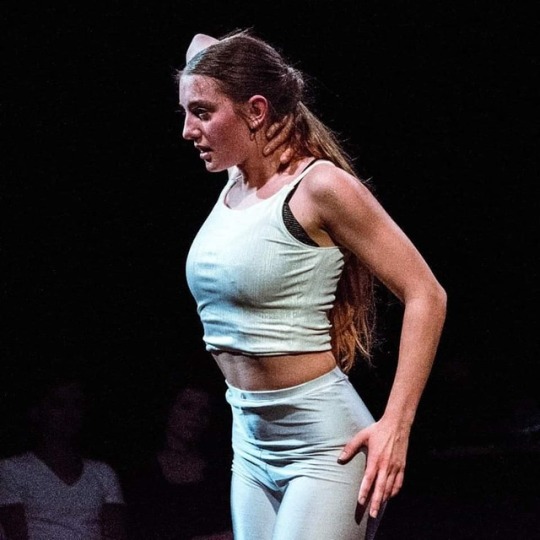
👉 👉 #PortoSanGiorgioInDanza stà #ritornando presentiamo i Nostri Maestri e Coreografi Special Guest per l'Edizione 2 • 6 Luglio 2019 -----> presentiamo i #Guest di quest'anno : * Monica Perego - Già Prima Ballerina ed Etoile • Classico * Massimo Mouvework Perugini - Direttore M.A.S. di Milano • Contemporary * Antonio Fini - Fini Dance • Usa • Modern * Alina Fejzo - CODARTS • Rotterdam • Warm Up • Impro • Creo Choreography * Graci Fert Fernandes • Brasile • Body Flying & Danza Aerea * Corso Intensivo per #Insegnanti • Propedeutica #AlinaFejzo #Artista e fotografa italo-albanese, residente nei Paesi Bassi. Insegnante permanente presso l'Università di #Codarts per l'improvvisazione e la tecnica moderna al Music Theatre dal 2016. Experience 2019 In arrivo la ripresa di Kristina De Chatel 'Pulse' del 2007. Co-produzione con Sally, Maastricht. Prende parte nell’esibizione di ‘Black Dog’ di Teddy Shouldn’t Smoke in varie località. 2018 In tour nazionale con ‘ #Thron ' di Krisztina de Chatel e VA Wolf e candidato al premio #Zwaan nella categoria “Most impressive performer" nel Dans Dagen di Olanda. Si esibisce solista ‘The Liminal Space’ in collaborazione con Marta Reig Torres e musica di Tim Van der Burg per il festival Migrats di Valencia, e a #Rotterdam per il Kunsthal Museum in collaborazione con l'artista visivo Willem Besselink. Performer di Dario Tortorelli in ‘D No Body # 5’ a Mauritshuis Den Haag. Tour nazionale con il solo 'Seven Years' di Teddy Should’t Smoke e in anteprima un nuovo pezzo 'Black Dog'. Interprete per il cortometraggio di Krisztina de Chatel e Wiam Al-Zabari 'Vlucht' in anteprima a #Cinedans, Amsterdam. 2017 Tour con ‘Thron’ balletto di Krisztina de Chatel and VA Wolf del 1984. Si unisce a Teddy Shouldn’t Smoke and artista Josine Slemmer in ‘Seven Years’, una performance solista di un ora, e in tour durante tutto l'anno in vari teatri ed eventi. Ha lavorato con Itzik Galili nella produzione ‘Prins Igor’, opera di Dmitri Tcherniakov per il Dutch Opera&Ballet, Amsterdam 2016 Ha danzato per Annemijn Rijk in ‘Milk & Honey’, un duetto con Kim Hoogterp. Performer per Teddy Shouldn’t Smoke..... (presso Porto San Giorgio) https://www.instagram.com/nascodanza/p/BwsD-53hxrk/?utm_source=ig_tumblr_share&igshid=1062q5glk8vxf
#portosangiorgioindanza#ritornando#guest#insegnanti#alinafejzo#artista#codarts#thron#zwaan#rotterdam#cinedans
0 notes